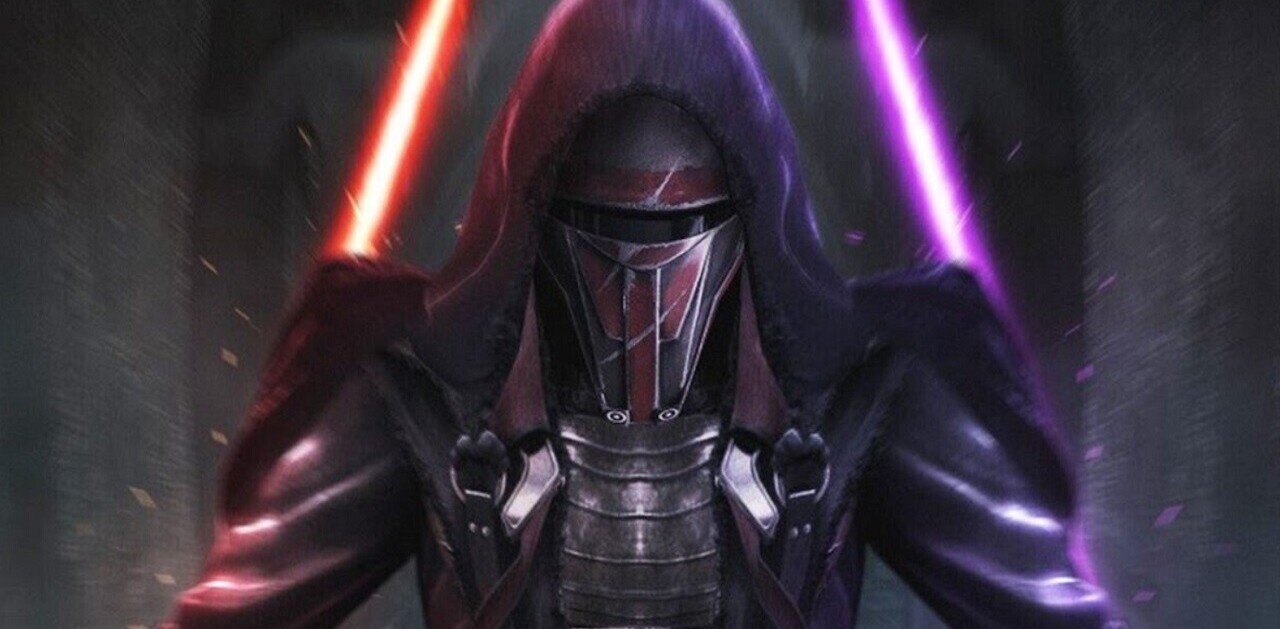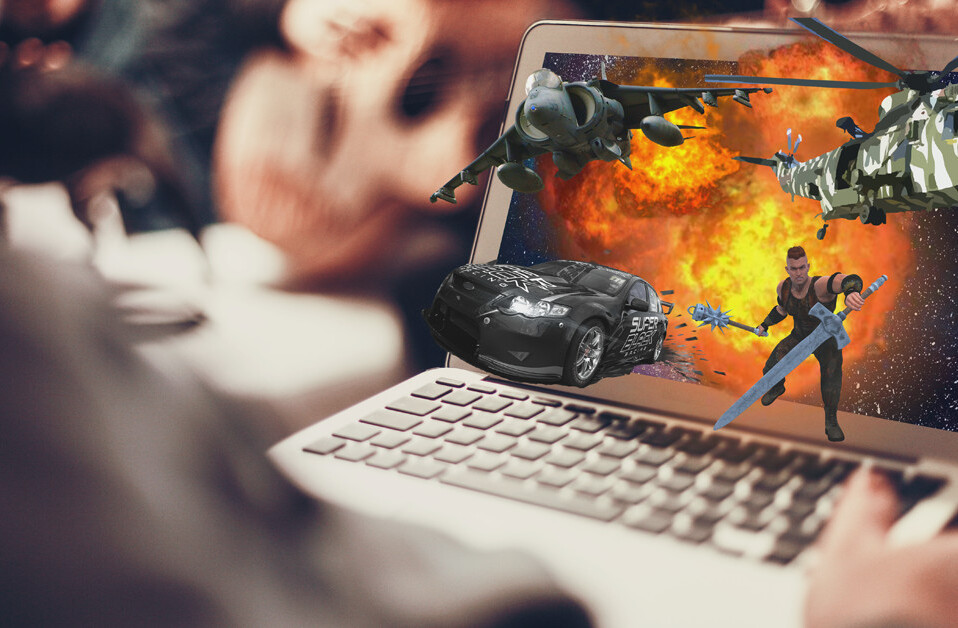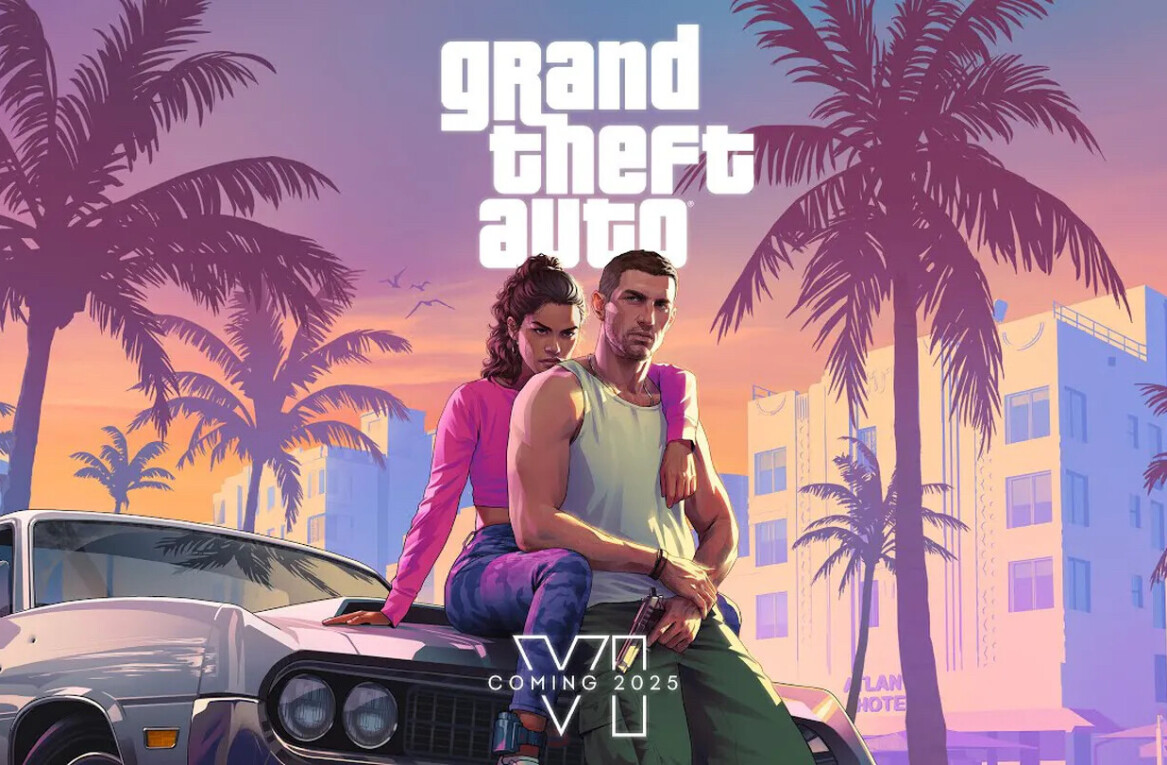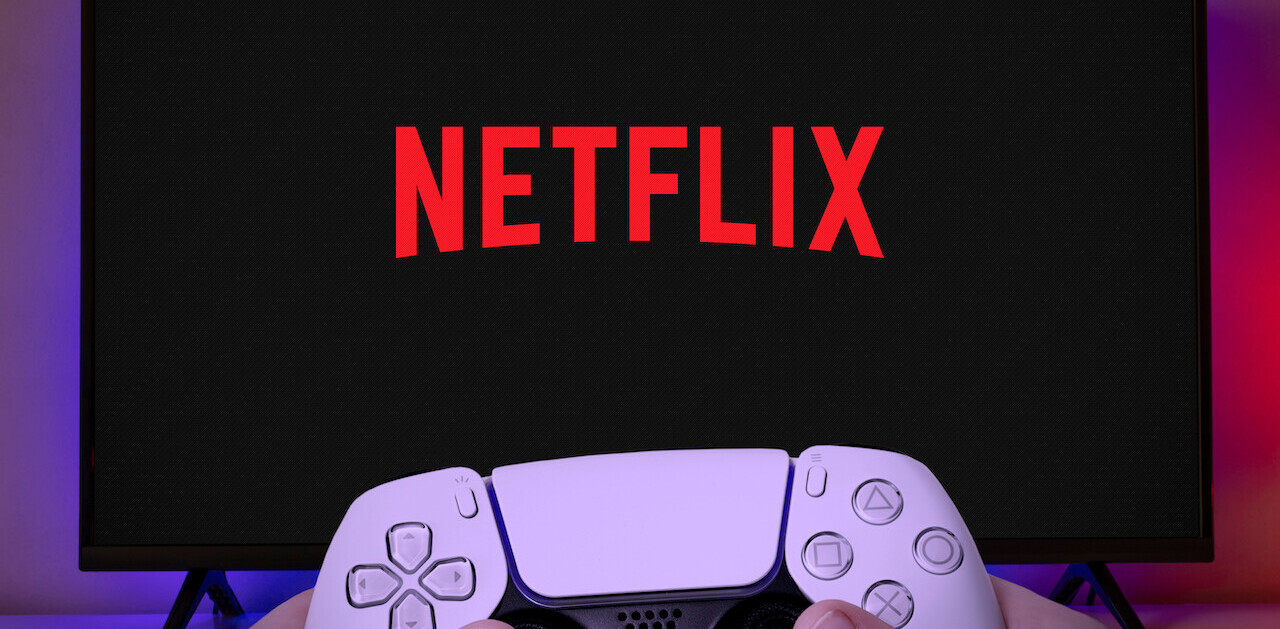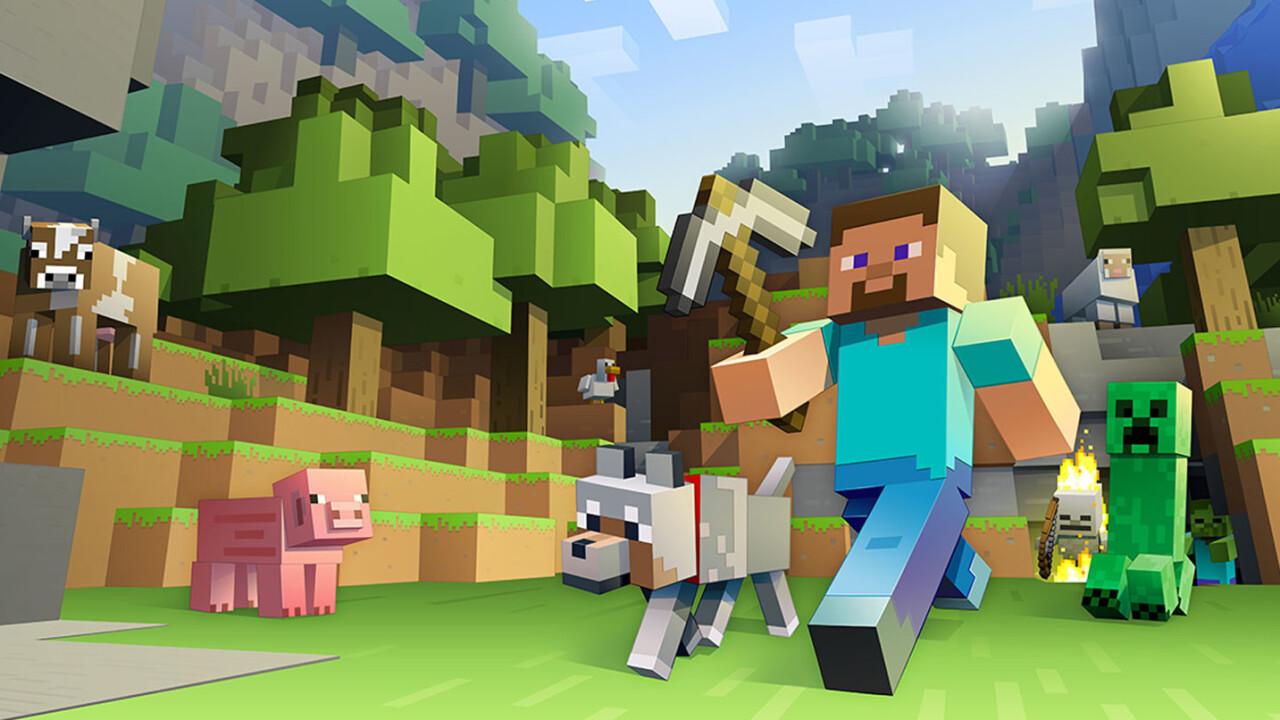
The games industry has undergone several serious changes in the last few years. YouTubers and are now the bread-and-butter of game advertising, mods are almost as interesting as the games they’re changing, and battle royale is effing everywhere.
So where’d these changes come from? They came from a few games that, through their impact and popularity, changed the gaming industry as a whole.
I won’t lie to you: trying to rank influence is really difficult. There are so many games that left ripples on the industry that judging the size of those ripples can be a tricky exercise in sorting out which game came first. And there are several games that I feel deserve recognition, despite the range of their impact not being as broad. So I will include a few honorable mentions at the end, just to acknowledge a few games that I think have had some influence, though perhaps not as earth-shattering as the main 10.
With all that out of the way, here are the ten games that changed the video game landscape in the 2010s:
Dark Souls
The From Software formula has become so thoroughly ingrained in our culture that games which take influence from them have a name: “Souls-like.” And ever since the first Dark Souls game debuted in 2011, it’s changed the way games approach difficulty, map design, boss encounters, and more. Now you see Souls-like games everywhere: Nioh, Salt & Sanctuary, Dead Cells, Hollow Knight, and even Jedi: Fallen Order.
One could make the case that the formula actually originated with Demon’s Souls, but I do think the more-popular Dark Souls is the one that had the larger influence, if only by virtue that it was so many people’s introduction to the gameplay style. The game compounds its Sisyphean difficulty with dense-if-obscure lore that encourages fans to replay and pick apart the story.
The Souls games’ challenge has been the source of some controversy ever since it became a staple of the industry. On the one hand, you’ll have some who complain that adhering to the formula raises the barrier to entry too high for new, young, or disabled, while others have argued that the challenge is part of the point. That’s a discussion for another day, but suffice to say the Souls-like difficulty has changed the conversation about what a game is supposed to offer its players.
Minecraft
The little game that could, the brainchild of Notch, the game safe enough for kids and complex enough for adults, the game upon whose back Twitch and YouTube Gaming were practically built… what could I say about Minecraft that hasn’t already been said a million times before?
Minecraft is able to maintain its fanbase specifically because it’s got something for everyone. If it doesn’t exist, you can create it. The world of Minecraft isn’t just a game: it’s a whole other world that exists as a playground for gamers, and it feels that way because of its sheer breadth, and the in-universe ecological rules that hold the whole thing together.
But more than anything else, Minecraft has thrived on a sense of community. Were it just a platform for people to go in and build their own creations in a vacuum, it’d be rather lonesome. But Minecraft has become a place you can share with others, a gathering space where you can invite friends, or even a stage where streamers and YouTubers perform for audiences of millions. Minecraft has thrived throughout the decade, its popularity barely flagging, and the rest of the gaming industry has been building itself around its monolithic presence ever since.
Elder Scrolls V: Skyrim
Okay, look. I know I’ve reiterated in at least three articles on this very site that I’m a little tired of Skyrim, so this might sound a little disingenuous coming from me, but I’ll say it anyway: the fifth Elder Scrolls game is the most influential RPG of the decade. Whether I like it or not, Skyrim has had an effect on the industry at large — it’s the kind of impact left mainly by brute force, but an impact nonetheless.
Building on the formula of its predecessor Morrowind, Skyrim’s story of dragons, civil war, and a singular hero destined to save everything was palatable both for genre fans and the newbies diving into an open world. Skyrim would prove to be a template, even just as something to improve upon, for the developers of Legend of Zelda, Dragon Age Inquisition, and The Witcher 3. Dragon Age writer Mark Darrah even told GI.biz that Skyrim’s high sales brought with it high expectations: “Now suddenly you have 15 million people that have basically had the first RPG they’ve ever played as Skyrim. They have totally different expectations of what storytelling is, what exploration is…”
Also, leaving aside its impact on game development, the game has also lasted well past its sell-by date through its second life as a modder’s paradise. I don’t have the numbers to say Skyrim is the most-modded game of all time, but I do have some from popular mod hosting site NexusMods, and Skyrim has double the amount of mods of its nearest competition, Fallout 4. I know of more than a few people who first started modding with Skyrim, and through their diligence they’ve managed to make this already-great open world even better as time goes on.
Grand Theft Auto V
Grand Theft Auto has always been the focal point of the tricky relationship between modern games, with their history of violence, and the mainstream media that hasn’t always accepted that. So for GTA V to come out and be a bonafide cultural phenom has got to rank among the most ironic moments in gaming history.
GTA V did this by embracing the crazy, over-the-top violence that made it a household name in the first place. The story starred three characters who each embodied the different archetypes Rockstar had created in its previous games. It also perfected the living, breathing open world as a satire of urban decay.
Besides the game itself, it later launched an Online mode that has proved almost as popular as the single-player game. Turns out that players who enjoy indulging their anarchic instincts and creating chaos in a single-player settings would equally love to do that in a shared open world. The GTA Online open world has changed what an MMO can offer, as players are allowed to do anything to make their own fun.
Telltale’s The Walking Dead
The adventure game genre was slowly sliding into obscurity before TellTale’s famous horror adventure game debuted. It reinvigorated the concept with a simple idea: instead of having the player influence the game world by moving around and performing actions (as would be the case in most other games), have them influence the world through their choices.
TellTale’s vision of the player as the driving agent of the game’s story changed the industry just as much as the gravity of the choices players were called upon to make. Each player had a “version” of the story that belonged only to them, influenced by their choices and the connection they had to the characters and situation.
There were other games that added to the genre as time went on: here I feel obligated to mention Gone Home, which popularized the “walking simulator,” making the player an audience to events. But while those games have their place in the genre, it was TellTale’s unique take on player choice that seeped into the DNA of adventure games, and you can see it in plenty of modern games like Life is Strange, Oxenfree, or Firewatch.
PlayerUnknown’s Battlegrounds
The battle royale craze has completely scorched the earth. It seems like every kind of game under the sun has to have a battle royale mode, because it seems to be all the kids are playing these days. The visibility of this genre is, of course, largely due to the popularity of Fortnite.
But let’s not forget that Fortnite, for all its popularity, didn’t create the genre. Neither did PUBG, for that matter — that honor goes to mods created within the likes of Minecraft and Arma 2 — not to mention the likes of H1Z1. But given that the titular “PlayerUnknown” a.k.a. Brendon Greene, also worked on those mods, and H1Z1, his version of battle royale became the gold standard.
PUBG isn’t as highly regarded by the world at large as Fortnite, but I maintain that Fortnite and its legion of colorful offshoots, such as Apex Legends, wouldn’t have existed as they are now without PUBG taking the concept so thoroughly mainstream.
Amnesia: The Dark Descent
The reinvigoration of horror gaming began with this twisted, disturbing game from Frictional. Amnesia posited a different spin from its fellow horror tales: what if your damaged, fearful hero couldn’t fight back? That, in and of itself, isn’t new: Clock Tower was one of the progenitors of this kind of horror. But Amnesia brought this concept into play when other horror games like F.E.A.R and Dead Space put a heavy emphasis on combat, and it was practically a revolution.
Ever since Amnesia, first-person psychological horror has taken up a large part of the genre. Outlast, Alien Isolation, Slender and even Resident Evil 7 have roots in this game The tenuous sanity and the helplessness of the player character became a recurring theme in 2010s horror games, due in large part to Amnesia.
An equally important revelation from this game was how it changed the relationship between YouTubers and game developers. The LetsPlayers were one of this game’s biggest advertisers, their terrified reactions to the in-game scares generating more curiosity than any trailer could. Now YouTube Let’s Plays are a cottage industry all on their own, and can help create a sensation out of even the most humble indie.
Pokémon Go
Mobile gaming has always had a bit of a struggle to match its bigger, splashier cousins on PC and console. Smartphone gaming has had to compete with the likes of the Nintendo 3DS — equally portable, had many more games to offer. All of its successes (Angry Birds and the like) have been pushed aside as “casual” games. Smartphones needed a killer app to be taken as seriously as their handheld console brethren.
Enter Pokémon Go. This game changed everything simply by being both a mobile game and an entry in a very popular franchise. Before then, the idea that any popular “gamer’s” franchise could make the jump into the perceived kiddie pool that was smartphone gaming would have been scoffed at, but Go proved anything was possible.
There have been many Go-ish mobile augmented reality games, though none have managed to capture lightning in a bottle quite like the original. But it doesn’t matter, because what the game did was bring augmented reality and mobile gaming together. The games that build on this combination, such as Minecraft Earth, are what’s going to crystallize this formula in the wake of Go’s success.
Besides the AR gaming craze it inspired, it also got many gamers on their feet and walking around. The idea to attached AR gyms to real-world locations was nothing short of genius. While you could argue that the locust-like gamer mobs this inspired weren’t necessarily always good for the environment (and I wouldn’t exactly argue), it’s still good to see a game that not only doesn’t tether you to a console, but outright encourages you to get off your duff and go the heck outside.
Dota 2
The 2010s were the decade in which esports shot to prominence, and competition earnings hit dizzying new heights. And a game that originally started as a mod became one of the most popular esport games in the world, drawing in huge prize pools.
The original Defense of the Ancients mod pioneered the concept of a Mobile Online Battle Arena, and later went on to influence fellow esports games like as League of Legends. When Valve bought the rights to the mod and recreated it as Dota 2, it decided to set up a major tournament, the International, for those who had played the original Dota competitively and offered what at the time was the highest prize in anyone had seen: $1.6 million.
While Dota 2’s far from the game with high-paying esports tourneys, the International’s payout has consistently topped the list of the those with the biggest purses. Most recently, the Dota 2 International increased its prize pool to over $30 million. It’s been an instrumental force in spurring esports onto a bigger and more prestigious stage.
Spelunky
Indie games have been responsible for the revival and popularity of several genres, from platformers to farming sims. And one of the most influential indies of the last ten years was Spelunky, which was the prototype for a game that looked very simple, but had an endless amount of gameplay to offer gamers who were willing to dig into it.
I realize this is a little bit of a cheat, since Spelunky technically released as an open-source project in 2008. But the version everyone recognizes was released in 2012, and that’s the version that has had the biggest impact on indie gamers. Without Spelunky, you wouldn’t have the likes of FTL or Binding of Isaac or Celeste — in other words, a game where, if you don’t succeed… die, die, and die again.
This is the game that perfected procedural generation, with each new level being a different, yet coherent obstacle course. Playing it is a fun, energetic romp in which the player must be more than a little daring if they want to move to the end. You can play it for literal years and not find or experience everything the game has to offer. And now we’ve seen many roguelikes and indies that are just as engaging. We owe Spelunky a debt of gratitude for kicking off a trend of truly impressive indie roguelikes.
Honorable mentions
Five Nights at Freddy’s
If Amnesia galvanized the YouTube community as gaming’s collective word of mouth advertising system, then Five Nights at Freddy’s made it into a full-blown tour de force. FNAF was more of a bizarre side adventure than a major influence on gaming. But still, the collective obsession with FNAF single-handedly created a gaming dynasty for one beleaguered indie developer, and showed how much could be created from the partnership of passionate fan, LetsPlayer, and game creators.
Candy Crush Saga
I don’t consider Candy Crush influential per se: inspiring clones and being yourself a rip-off of Bejeweled is not the same as changing the industry. But Candy Crush became a soft watershed moment for gaming as a whole, as it became the model for freemium gameplay and the game that got lots of smartphone users into mobile gaming.
Fortnite and Overwatch
Say what you will about Epic’s battle royale dynasty, but it’s changed the way the world interacts with games. The game is so ubiquitous that people of different nationalities and generations are finding common ground within it. It’s also singlehandedly driven an interest in esports where none existed before. Overwatch’s impact has been similar, albeit not as pronounced. Also, like FNAF, it’s created a template for how game development can be accompanied by non-game media, in this case a series of exceptional YouTube short films that flesh out the backstories of its characters.
Which games do you think have had the greatest impact in the last ten years? Ping me on Twitter @rachelkaser and let me know!
Get the TNW newsletter
Get the most important tech news in your inbox each week.

